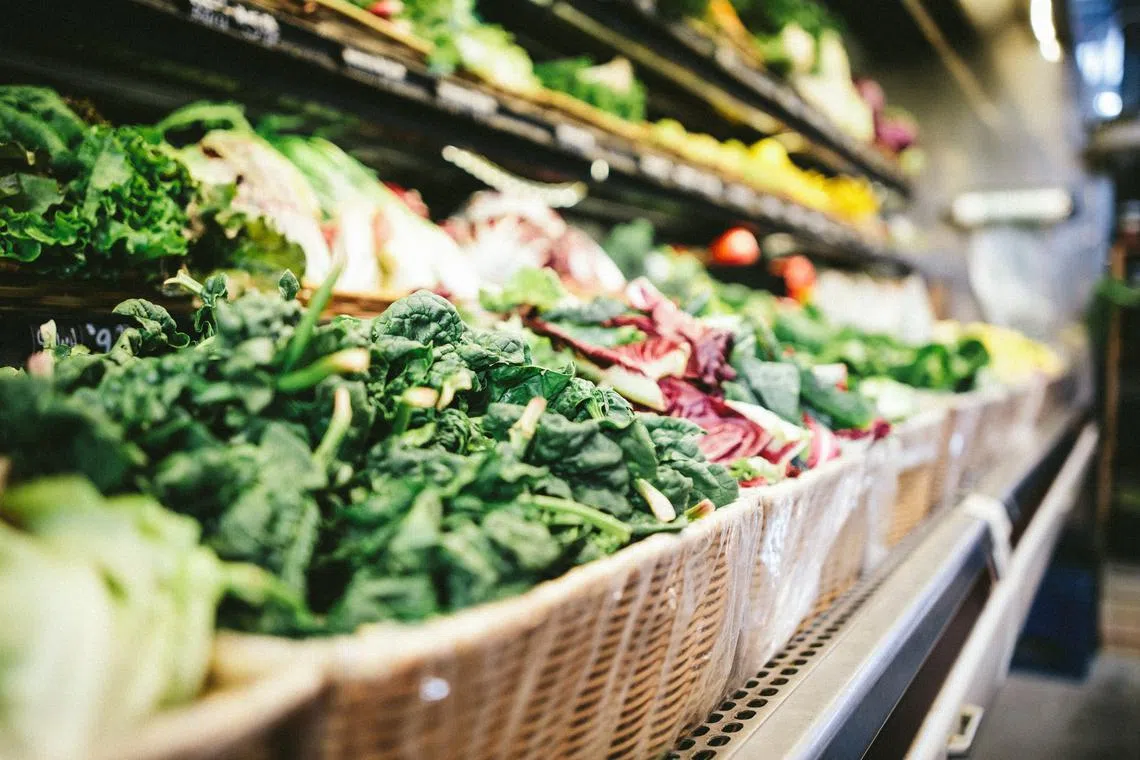New Zealand’s ruling Labour Party pledges to exempt fruit, vegetables from GST
Sign up now: Get insights on Asia's fast-moving developments

Food-price inflation peaked at 12.5 per cent in April, when fruit and vegetable prices surged an annual 22.5 per cent.
PHOTO: UNSPLASH
Follow topic:
WELLINGTON - New Zealand’s ruling Labour Party said it will exempt fruit and vegetables from the goods and services tax (GST) if it wins a third term at elections in October.
Unveiling the party’s tax policy on Sunday in Wellington, Prime Minister Chris Hipkins pledged to increase benefits for low-income families. He said that the benefits would deliver an average of NZ$47 (S$38) a week to 175,000 households when fully implemented in 2026.
“The cost of living is the biggest issue facing New Zealanders in this election,” Mr Hipkins said. “A lot of the people who oppose these changes aren’t the ones worrying about their weekly food bills. This policy is aimed at New Zealanders for whom every dollar at the checkout matters.”
Tax is shaping up as a key battleground issue for the Oct 14 election. The main opposition National Party, which is currently ahead of Labour in opinion polls, is promising tax cuts.
Food prices have soared in a post-pandemic bout of rampant inflation, exacerbated by a cyclone in February that destroyed orchards, vineyards and farm crops in some of New Zealand’s most productive areas.
Food-price inflation peaked at 12.5 per cent in April, when fruit and vegetable prices surged an annual 22.5 per cent.
Labour’s plan to remove the 15 per cent GST from fresh and frozen fruit and vegetables from April 1, 2024 would save the average household about NZ$18 a month, Mr Hipkins said. Low-income families would also get NZ$25 more a week through an increase to the in-work tax credit from April 2024, he said.
The party also promised to raise the abatement threshold in its “Working for Families” assistance programme to NZ$50,000 by April 2026, so that working families keep more when their income increases.
Mr Hipkins sought to head off criticism that the GST exemption could be complicated to enforce and might not be passed on to customers, saying other countries, including Australia, take the tax off fruit and vegetables.
“In fact, most countries that have a form of GST have carve-outs for certain items, and if anything, New Zealand is currently an outlier,” he said. “In the modern world with electronic transactions, it’s a fairly simple policy to implement.”
The GST exemption would cost about NZ$2 billion over four years, while the support measures for low-income families would cost about NZ$1.4 billion over the same period, Labour Party costings show. BLOOMBERG

